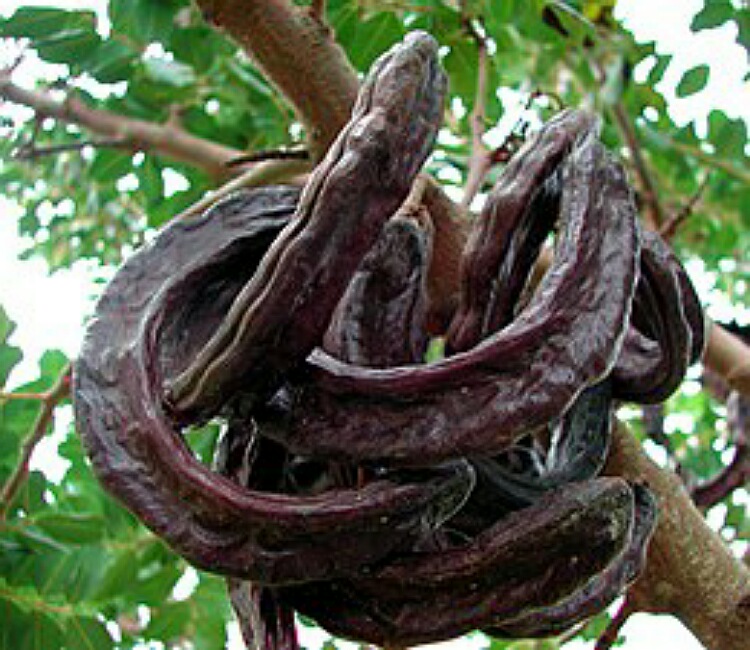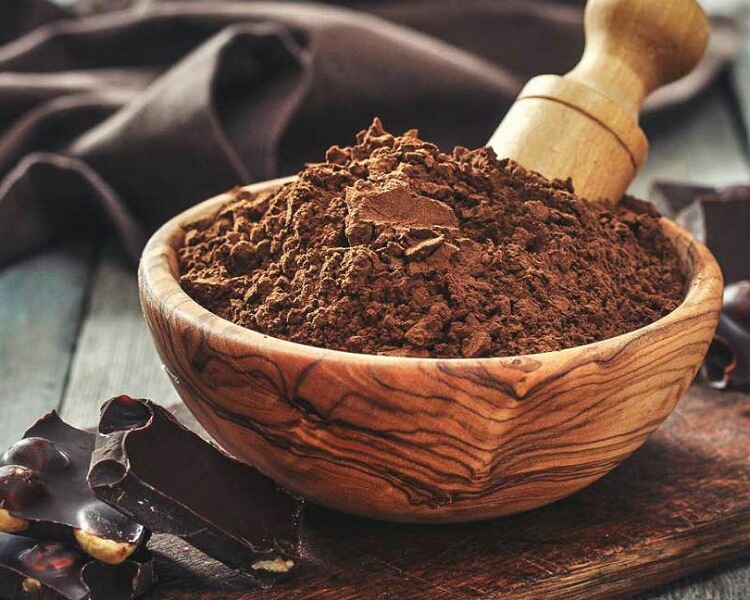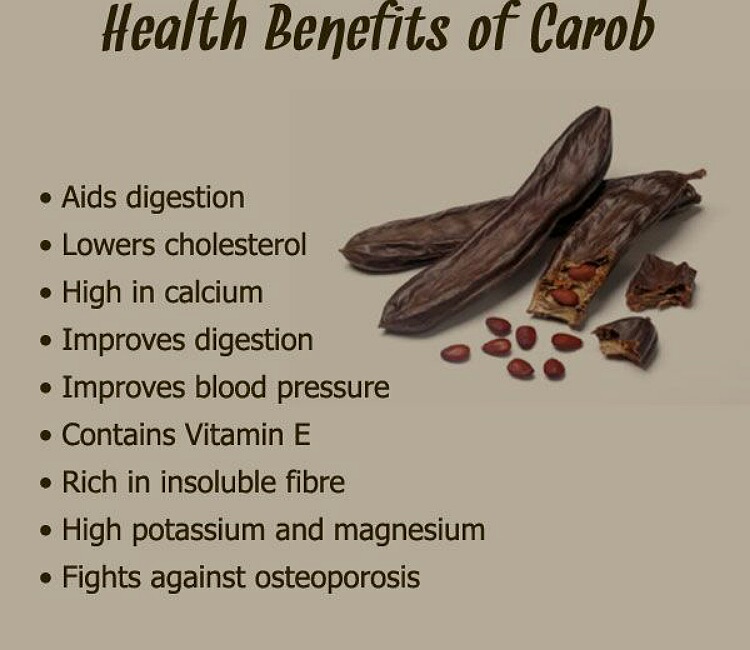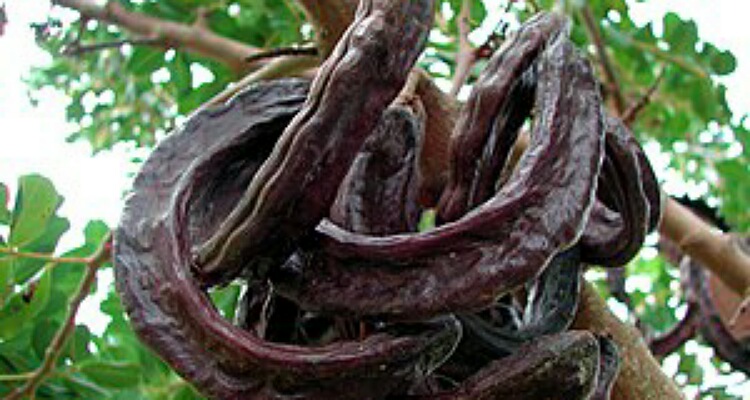Carob is a type of fruit from Carob tree. It is like a pod with pulp and seeds inside.
Though known since ancient times, its popularity has grown in recent years due to its capability to substitute for chocolate. What are the uses, benefits for health, and side effects of carob fruit?
Carob fruit: description and uses
Carob fruit use was present in ancient Greece as long back as 4000 years. The carob tree is called scientifically Ceratonia Siliqua.
Its fruit is like a pea pod but longer and has a brown color. Inside this, are the seeds and pulp of the fruit. Encyclopedia of Healing foods has written this about this fruit:
“19th-century British chemists sold carob pods to singers. Chewing on carob pods helped singers maintain healthy vocal cords and soothe and cleanse their throat.”

Realizing its importance, manufacturers started making and selling the fruit as a powder, dietary pills, syrup, extract, and also as chips.
One can have the fruit as fresh as well as in the dried form. One can make it into fudge, brownies, or chocolate milkshakes.
It has a taste similar to chocolate and has fiber, low fats, sugars, and antioxidants, but without caffeine or gluten, or lactose. It is sweet enough and needs no added sugar for taste. Therefore, it is healthier than chocolates.
Nutritional facts
Carob has no caffeine and is fat-free. It has no substances that can trigger migraine-like chocolates. The calcium content of carob is twice that of cocoa.
It contains no oxalic acid while cocoa has it and this can interfere with calcium absorption. Its sodium is also less than that of cocoa. Moreover, carob has vitamins A, B2, B3, and B6.
Additionally, it also has calcium, manganese, magnesium, copper, zinc, selenium, and potassium. It has protein and fiber and also pectin.

Unsweetened carob chips in 2 tablespoons have 70 calories. There are 8 grams carbs, 7 grams sugar, 3.5 grams fats, 2 grams fiber, 2 grams protein, 50 grams sodium, and fair amounts of calcium.
Health benefits
It is a healthy substitute for chocolates. It has no caffeine and can be of use for people with high blood pressure. And it has high fiber and low fats and proteins.
Therefore, it is excellent for people who want to lose weight. The vitamins help in eye and skin health.

Furthermore, it can reduce blood cholesterol levels and is advised for people with heart diseases. Having them in your daily diet can aid in reducing heart disease risk.
It is of use to treat loose motions and upset stomachs. Its antioxidants are beneficial for the heart. It is safe even in children with diarrhea.
The fruit is relatively safe. US FDA has sanctioned it for use in food, pharmaceuticals, and also cosmetics. Allergies to it are rare. But in Spain, some cases of allergy to it are reported.
These people also had nut and legume allergies. But it was revealed that if carob seeds and carob gum are cooked, the chances of problems are lessened.
However, high consumption should be avoided lest it causes a sharp decline in blood sugar or leads to severe weight loss.
